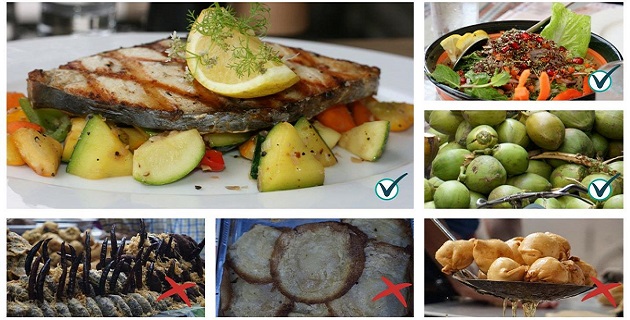Ramadan is finally here. Millions of Muslims are observing fasting from morning twilight to the evening twilight which lasts for approximately 15 hours a day for one whole month in Bangladesh. During the holy month of Ramadan, people get together to break the fast with rich food with high calories. Some may also engage in less physical activity during Ramadan. Therefore, it is very important to pay attention to nutrition during Ramadan to stay healthy and avoid weight gain.

Here are some practical recommendations to help.
Eating dates to break your fast is a traditional and healthy way to begin Iftar. Dates are excellent source of fiber;
Consume light meals for Suhoor (Sehri) which include vegetables, carbohydrates such as whole-grain rice or whole wheat bread and protein-rich food such as skinless chicken breast. Do not skip Sehri meal as this meal gives energy for the whole day until Iftar;
Stay hydrated by drinking adequate amounts of water and consuming hydrating or high water content foods such as homemade soup, vegetables and fruits for example cucumber, lettuce, tomato and watermelon during Sehri and Iftar;
Limit the intake of sugars during Iftar especially sweet foods and beverages such as cakes, misti or milk-based desserts, fizzy soft drinks, and fruit juices;
Limit the intake of fatty food especially fried food such as shinggara, piaju, pakora, samosa, fries; fatty meats, pastry with added margarine. Choose white meat rather than red meat, choose lean cuts and trim away the obvious fats before eating;
Avoid foods high in salt content, such as processed meat, beef or chicken salami and sausages, pickles, salty cheeses and sauces;
Eat slowly – large amounts of food taken quickly may cause heartburn and discomfort;
Be active in the evening by engaging in activities like brisk walking.
Editor’s note:
This guidance has been adopted from “Promoting a healthy diet for the WHO Eastern Mediterranean Region: user-friendly guide” 2012
